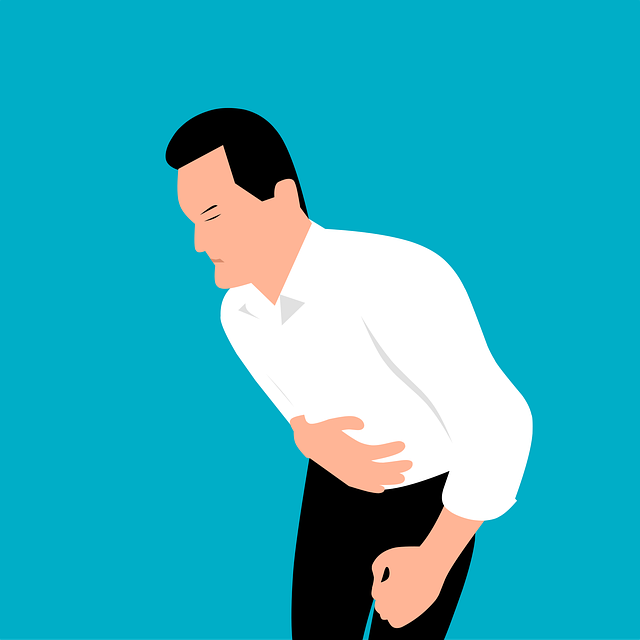Does stress cause diarrhea?
The relationship between stress and diarrhea isn’t exactly clear cut. Some studies suggest that anxiety causes diarrhea while others say it’s the opposite. One study found that people who had been diagnosed with irritable bowel syndrome experienced fewer episodes of diarrhea when they felt less stressed. Another study suggested that stress caused diarrhea because it increased levels of serotonin, which stimulates gut activity.
If you are experiencing a episode not, ready on to understand more about stress diarrhea to understand How long does stress diarrhea last.

I remember experiencing my first episode of stress diarrhea. I was in the middle of a particularly stressful situation, and suddenly, I felt a sharp pain in my stomach and had to run to the bathroom. To my surprise, I found myself dealing with an unexpected bout of diarrhea. It felt like it lasted forever – it was so uncomfortable and embarrassing! After that experience, I started to research more
Why does stress sometimes cause diarrhea?
While some people are able to control their feelings, others struggle with emotional triggers that lead to physical symptoms like headaches, heart palpitations, nausea, and diarrhea. A recent study published in Frontiers in Psychiatry found that stress causes changes in the activity of certain chemicals within the gastrointestinal tract, leading to increased bowel movements.
Researchers examined how stress affects different parts of the digestive tract. They discovered that stress caused a significant decrease in serotonin levels in the small intestine. Serotonin is a neurotransmitter that regulates appetite and satiety. When serotonin levels drop, food intake increases. In addition, researchers observed that stress led to decreased levels of gamma aminobutyric acid (GABA), another important chemical involved in regulating behavior and emotion. GABA helps regulate the release of hormones such as oxytocin, which influences social interactions and maternal caregiving. Stress also decreases levels of dopamine, a neurotransmitter associated with pleasure. Dopamine plays a role in reward processing, learning, memory, motivation, and movement. Finally, stress leads to increased levels of corticotrophin releasing factor (CRF). This hormone stimulates the production of ACTH, which triggers the release of cortisol into the bloodstream. Cortisol promotes energy mobilization and suppresses immune function.
Recognizing IBS
If you suffer from diarrhea and constipation, bloating or gas, you may have irritable bowel syndrome (IBS). You may even notice symptoms like pain, cramping, nausea, vomiting, urgency or discomfort during defecation. While there isn’t one single cause of IBS, researchers do know that certain factors can trigger episodes. These include diet, medications, infections, travel, hormonal changes, pregnancy, childbirth, surgery, food allergies and stress.
Experts say that about 10% of Americans deal with some form of IBS. Symptoms vary widely among individuals, but most people report abdominal pain and/or change in stool frequency and consistency. People with IBS often describe feeling bloated, gassy, tired, or having trouble sleeping. They may also complain of frequent headaches, muscle aches, joint pains, depression and anxiety.
While doctors don’t know why some people develop IBS, they do know that anxiety and stress are major triggers. Many people with IBS report experiencing GI problems when they’re stressed or anxious. In fact, research suggests that up to half of patients with IBS may actually have underlying psychological issues.
So how does your gut react to stress? Stress hormones such as cortisol and adrenaline can affect the way your digestive system works. Cortisol levels rise when we’re under pressure, and adrenaline increases heart rate and blood flow. Both hormones can lead to increased stomach acid production and intestinal motility — movements within the intestines that help move food along. When those happen frequently, digestion slows down and you may end up with diarrhea.
Some studies suggest that people with IBS tend to have a hypersensitive colon. This could mean a person develops symptoms when eating certain types of food or when experiencing emotional distress. For example, someone with IBS may have a heightened response to gluten, dairy or caffeine. Or he or she may become ill after consuming alcohol or taking antibiotics.
Reduced bowl movements
Stress can cause everything from headaches to heartburn. But it turns out, there’s another reason why we feel like our stomachs are tied in knots—stress actually affects our guts. In fact, research suggests that stress can make us less likely to poop.
According to study published in the journal Gastroenterology, people who experience high levels of stress tend to have fewer bowel movements. Researchers found that those who had experienced stressful situations such as divorce, job loss, death, or financial problems reported having fewer bowel movements compared to those who did not report experiencing stress.
But what about the connection between stress and diarrhea? While researchers aren’t sure exactly how stress causes diarrhea, they do know one thing: When we’re feeling anxious, our bodies go into fight or flight mode. And in that state, it’s common to experience nausea, abdominal pain, cramping, bloating, gas, constipation, and diarrhea.
While most cases of diarrhea don’t require medical attention, some people can develop serious health conditions because of it. So if you notice yourself suffering from frequent bouts of diarrhea, talk to your doctor right away.
Fight-or-Flight?
The fight-or-flight response is an acute response to stressful situations. This reaction helps us deal with threats such as being chased by a lion. In modern times, however, it often causes our bodies to react in ways we don’t want it to.

When you encounter something that you perceive as a threat, your body responds with various physiological changes, including digestive ones. For example, when you see a snake, your stomach starts producing hydrochloric acid, which breaks down food into nutrients. You also start sweating because your brain tells your muscles to prepare for action.
Stomach health and anxiety
If you’re feeling stressed or anxious, you might want to consider taking steps to improve your gut health. You don’t necessarily need to do anything drastic like cutting gluten out of your diet; just make sure you eat foods rich in probiotics. Probiotics are live microorganisms that help support good digestion. They can be added to food or taken orally.
Probiotic supplements are readily available online. If you prefer to take probiotics orally, look for products that contain Lactobacillus rhamnosus GG. This strain of bacteria is considered safe13. However, if you choose to add probiotics into your diet, keep in mind that some people may find that dairy products interfere with the effectiveness of probiotics.
Who’s at risk for stress-induced diarrhea?
If you almost always have to hurry to the bathroom when you are stressed out, it could mean something else besides IBS. Inflammatory bowel disease (IBD), such as Crohn’s disease or ulcerative colitis, can sometimes cause similar symptoms. But someone without diagnosable digestive issues can still experience stress-induced diarrhea.
Its worth getting a check up with your local general practitioner to ensure you do not have any other underlying health condition that could be causing your diarrhea.
How to manage diarrhea caused by stress?
Diarrhea can cause a lot of discomfort and inconvenience. But it doesn’t always require medical attention. In fact, most cases of diarrhea resolve themselves within one to three days without treatment. However, some cases can be serious enough to warrant medical intervention. If you suspect that you might have diarrhea because of stress, here are some tips to help you manage it.
Identify the source of the problem and address it. Stress causes many different physical symptoms including headaches, stomach aches, fatigue, insomnia, muscle tension, and even diarrhea. Identify the specific stressors that trigger your episodes of diarrhea. Then try to avoid those triggers whenever possible. For example, if you eat fast food frequently, cut down on the number of times you go out to eat. Try to make healthier choices when eating out. Also, don’t drink alcohol while stressed. Alcohol tends to exacerbate gastrointestinal problems like diarrhea.
Take time off from work. It’s important to rest when you feel overwhelmed. Taking a few hours away from work will allow you to relax and clear your head.
Try to get more sleep. Sleep deprivation has been linked to increased levels of cortisol, a hormone associated with stress. Getting adequate amounts of sleep helps reduce stress and its negative effects on your health.
Consider seeing a therapist. Many people who suffer from chronic stress also struggle with anxiety and depression. These conditions can worsen stress-related symptoms. So if you think you might benefit from counseling, talk to your doctor about finding a counselor who specializes in treating stress and anxiety.
How long does stress diarrhea last
Diarrhea associated with stress usually resolves within 2 weeks; however, it is essential to be cognizant of any symptoms which could indicate other medical issues.
